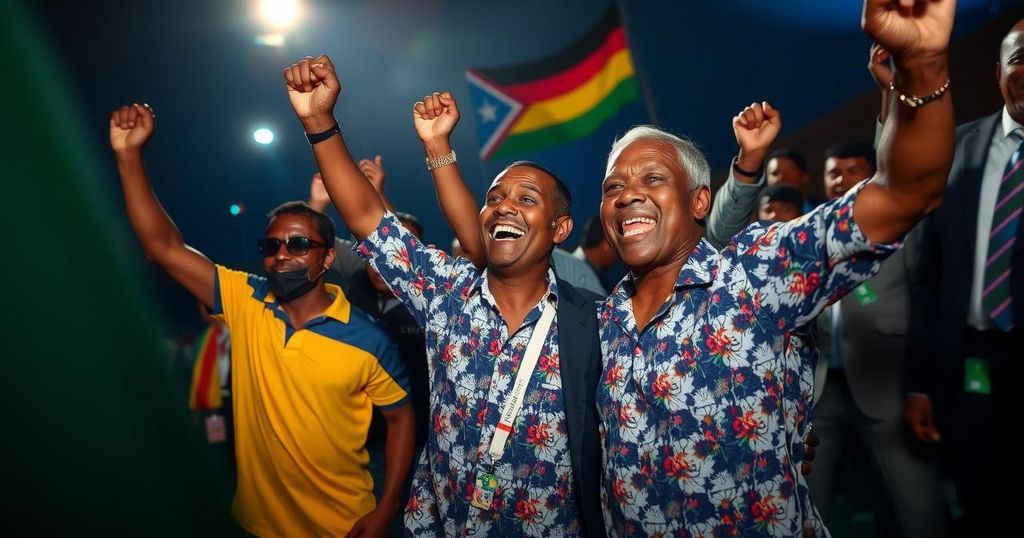Mauritius Opposition Achieves Historic Election Victory

The opposition coalition in Mauritius has achieved a historic victory, winning all parliamentary seats in the recent elections, with Navin Ramgoolam returning as Prime Minister. Prime Minister Pravind Jugnauth conceded defeat, acknowledging the electorate’s demand for change amid corruption allegations faced by his governing coalition. This election marks a significant political shift in one of Africa’s most stable democracies.
In a decisive electoral victory, the opposition coalition in Mauritius has secured all seats in the country’s parliament, representing a significant shift in political power. Results from the election held on November 10, 2024, revealed that the governing coalition led by Prime Minister Pravind Jugnauth was unable to secure any of the 62 seats contested by voters. With the opposition Alliance for Change coalition emerging victorious, Navin Ramgoolam is poised to return as Prime Minister, having previously held the office from 1995 to 2000 and again from 2005 to 2014. Prime Minister Jugnauth, anticipating the electoral loss, conceded defeat prior to the final results release, acknowledging his party’s failure across all 21 constituencies. His coalition, the Militant Socialist Movement, has faced mounting pressure and criticism due to corruption allegations linked to leaked recordings involving politicians and business figures. In his statement, Jugnauth remarked, “The population has decided to choose another team. I wish good luck to the country.” Though official results for the remaining seats are to be released soon, the opposition’s dominance is clear, with the announced results affirming that they have won all 60 seats reported thus far. Voter registration saw participation from over one million citizens, marking this election as the twelfth since Mauritius gained its independence from the United Kingdom in 1968. Known for its stability and successful economy, Mauritius has established itself as a leading democracy in Africa, underpinned by its robust finance, tourism, and agricultural sectors.
Mauritius is celebrated as one of Africa’s stable democracies, having transitioned to independence from British rule in 1968. The political landscape has been characterized by periodic elections and a rich multiparty system. The recent elections are particularly notable as they occurred against a backdrop of corruption allegations that tarnished the image of the ruling coalition. Voter turnout and public sentiment reflect a desire among the populace for transformation and accountability in governance, prompting this major electoral overhaul.
The recent elections in Mauritius epitomize a significant political reset, marking a complete rejection of the incumbent government. The successful return of Navin Ramgoolam indicates a clear public mandate for change, highlighting the electorate’s demand for integrity and effective leadership in the face of previous governmental missteps. As Mauritius prepares for a new parliamentary term, the focus will likely shift towards addressing the issues that led to the previous government’s downfall while reinforcing its status as a democratic beacon in the region.
Original Source: apnews.com







